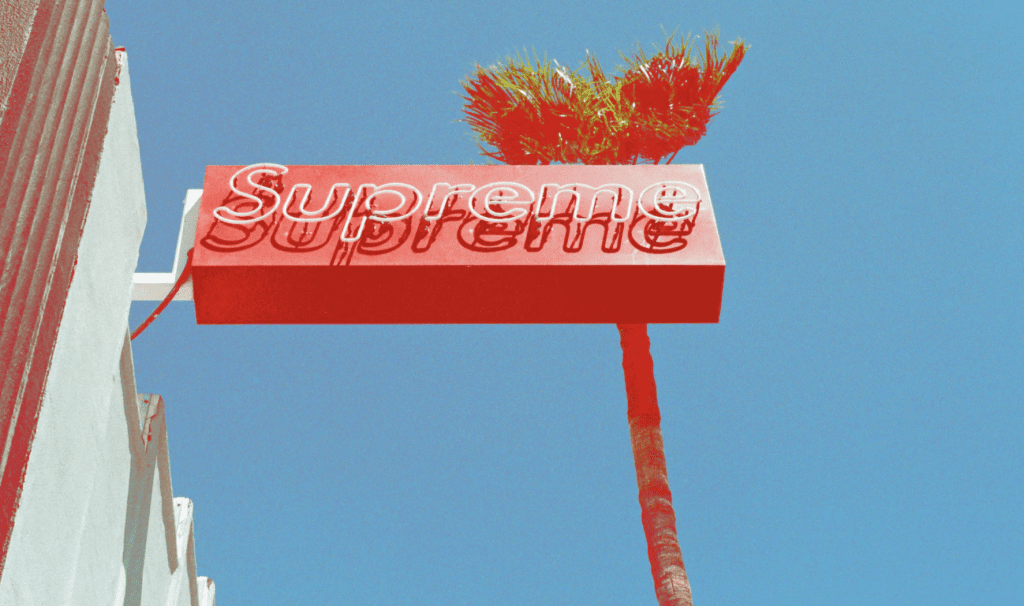Part of the enforcement efforts that trademark holders carry out on a routine basis comes in the form of opposition proceedings initiated with the U.S. Patent and Trademark Office (“USPTO”)’s Trademark Trial and Appeal Board (“TTAB”). In furtherance of such a proceeding, a trademark holder can formally request that another party’s application for registration be refused, most commonly on the basis of likelihood of confusion with a prior registered or used mark, dilution of a famous mark, descriptiveness, etc. At the same time, the TTAB also decides petitions for cancellation of existing trademark registrations – which are often lodged on many of the same bases as oppositions – and handles appeals involving applications to register marks and from expungement or reexamination proceedings.
With the foregoing in mind, we have compiled a monthly running look at some of the most relevant TTAB proceedings for retail brands complete with additional proceedings of note and/or updates to pending oppositions, cancellations and/or bids for reconsideration …
Supreme v. Supreme-essay.com
Supreme has initiated a new opposition, in furtherance of which it is urging the TTAB to reject an application for registration for a stylization of Supreme-essay.com for use in connection with the “writing of texts on demand, namely, essays, term and research papers, theses,” etc. in Class 41. According to Supreme’s corporate entity Chapter 4 Corp., applicant Pavlo Kucheruk’s mark makes use of “a stylization that is highly similar to the SUPREME marks,” and is being used for services that “are related to the goods and services offered under [Chapter 4’s] SUPREME marks.”
To support its assertion that essay writing services are related to streetwear, Chapter 4 points to its reputation for engaging in “‘seemingly infinite collaborations’ (according to Vogue.com) that expand far beyond traditional categories.” In particular, the company cites its “collaborat[ion] with The New York Post for a wraparound cover page, which sold out in record timing.” Since Kucheruk’s mark allegedly resembles Chapter 4’s SUPREME marks to the point that it is “likely … to cause confusion, or to cause mistake, or deception with the SUPREME marks,” and to “cause damage and injury to [Chapter 4’s] business reputation and goodwill,” Chapter 4 urges the TTAB to block registration for the mark.

Chanel v. Golden Concept AB
Chanel is looking to block the registration of a logo that consists of “interlocking back-to-back GG and CC combination” that Golden Concept AB is using on eyewear, watches, keychains, and handbags, among other goods. According to the notice of opposition that it filed on April 20, Chanel claims that it sells “hundreds of millions of dollars” of products “bearing or sold under [its] CC monogram” in the U.S., and uses that same monogram “on collateral material, such as packaging, labels, and hangtags.” And by virtue of its use of the CC monogram mark on its products, packaging, and corresponding marketing since 1920 and its patterns of spending “significant sums of money advertising and promoting its goods bearing its distinctive CC monogram,” Chanel claims that the monogram has become “one of the most respected and famous marks in the world.”
Against that background, the mark that Golden Concept – “an aftermarket electronic customization service” in Sweden – is aiming to register “calls to mind, creates the same mental impression as, or otherwise reminds consumers of [Chanel’s] CC monogram,” Chanel asserts. Due to the similarity between Golden Concept’s mark and the CC monogram, Chanel argues that registration of Golden Concept’s GCGC logo “would dilute and/or is likely to dilute [its] famous CC Monogram by impairing the distinctiveness of [that mark] to identify exclusively goods from Chanel.”

LVMH Fragrance Brands v. Luxus
In a separate luxury logo clash, LVMH Fragrance Brands (“LVMH”) is pushing back against Luxus Alternatives’ application to register a trademark that it claims is confusingly similar to the logo that is used by Givenchy. “Through decades of sales, advertising, and promotional efforts, the Givenchy logo has developed and symbolizes a reputation and goodwill extremely valuable to [LVMH],” the company asserts in its opposition.
While Luxus Alternatives filed its application on an intent-to-use basis (under Section 1(b) of the Lanham Act) in March 2022, LVMH alleges that “the mark is being used in connection with a business that purports to offer partial ownership of luxury goods, including but not limited to goods for which the Givenchy logo is used and registered.” Luxus Alternatives – which touts itself as the “first fractional ownership investment platform for luxury assets” – lists “downloadable software in the nature of a mobile application enabling parties to invest in securities of luxury assets” in Class 9 and “Financial and investment services, namely, partnering with brands for financing of fractional ownership in luxury assets for investors” in Class 36 as the goods/services in its application.
Given that it started using the Givenchy logo long before New York-based Luxus filed its application and in light of Luxus’ mark being confusingly similar to the Givenchy logo, LVMH argues that the application – which covers goods and services “closely related to the goods for which the Givenchy logo is registered and used” – should be rejected.

eBay v. NFT BAY
eBay’s bid to block the registration of “NFT Bay” for use in connection with “Conducting of educational conferences in the field of non-fungible tokens” (in Class 41) has resulted in a notice of default after the filing party, an individual named Jerome Palencia, failed to respond to the opposition that eBay initiated in March 2023. The online marketplace giant argued that it would be damaged if Palencia’s mark was registered in large part because “the dominant component of the famous EBAY Marks is the term BAY, which is arbitrary and highly distinctive of the goods and services covered by eBay’s registrations and in connection with which it uses the EBAY marks.”
eBay noted that in light of its “fame and success,” many entities have “attempted to adopt names and marks that combine the generic or descriptive term for what the particular service or website offers or provides with the distinctive BAY suffix of the EBAY Marks, to create a ‘generic/descriptive term plus BAY’ mark.” And that the USPTO has “recognized that the dominant component of the EBAY Marks is the term BAY, refusing third-party registrations” – such as FLEABAY – “on the ground that the use of BAY combined with a generic or descriptive term is likely to cause confusion with the EBAY marks.”
Taco Bell v. Taco Tuesday
And in the cancellations that made so many headlines this month, Taco Bell wants the TTAB to cancel two existing trademark registrations for “Taco Tuesday” on the basis that the term “should be freely available to all who make, sell, eat, and celebrate tacos.” The two separate holders of “Taco Tuesday” registrations are” (1) Sheridan, Wyoming-based Spicy Seasonings LLC dba Taco John’s (petition for cancellation here); and (2) Somers Point, New Jersey-based Gregory Hotel, Inc. (petition for cancellation here) – both of which operate restaurants. The Taco John’s registration was issued by the USPTO in December 1989, and Gregory’s registration – which is “limited to the area comprising the State of New Jersey” – was issued in 2009.
In the cancellations that it filed this month, Taco Bell asserts that far from being an indicator of source, “Taco Tuesday” is, instead, a term that is “used ubiquitously by restaurants throughout the U.S. in a generic and informational manner to promote the sale and/or consumption of tacos and related products on Tuesdays.” Specifically, the “Taco Tuesday” does “not meet the statutory definition of a trademark,” per Taco Bell, “because it does not ‘identify and distinguish’ [Taco John’s and Gregory’s] services and does not ‘indicate the source’ of such services.”
Hardly a run of the mill cancellation, Taco Bell’s endeavor – which has come complete with a press release, a slew of assets for media coverage, and a Lebron James endorsement – appears to be just as much a PR move as it is a quest to “liberate” the Taco Tuesday phrase. It is worth noting, as the WSJ did this week, that “Both Gregory’s and [Taco John’s] try to keep Taco Tuesday to themselves [by] sending cease-and-desist letters to other restaurants. Greg Gregory said his family’s restaurant has sent around 40; Taco John’s said it doesn’t track the number of letters it has sent.” While it is unclear whether any of those letters were ever addressed to Taco Bell, both parties said their companies have never sued another restaurant for using the Taco Tuesday mark in connection with their operations.











